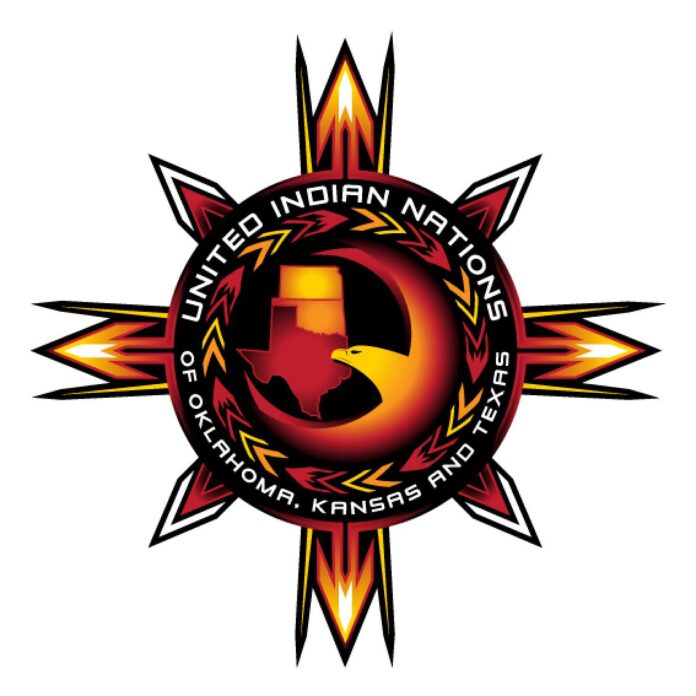SKIATOOK — Everything old is new again, or so it seems for several tribal leaders when it comes to sovereignty fights.
Taking to the Osage Casino podium at the quarterly meeting of the United Indian Nations of Oklahoma, Kansas and Texas, Osage Nation Principal Chief Geoffrey Standing Bear reminded attendees that although tribes have sovereign-to-sovereign relationships with states and the federal government dating back centuries, that has not always meant that the relationship has been harmonious. That relationship has been tested in recent years both with the state and federal government for several tribes, including the Osage.
“Just look at the recent court decisions,” he said. “The days of being able to rely solely on our treaty rights are over.”
Citing a loss of property tax revenue, the Osage County Commissioners voted in January to appeal a land-into-trust application from the nation for 75 acres near Osage Casino’s flagship location in north Tulsa. If the tribe’s trust application is approved, the property would be used for technology and research center, including aerospace and drone projects. A decision is still pending on the appeal.
The tribe is also dealing with pushback on its application to have the 43,000-acre Bluestem Ranch taken into restricted status – this time from the federal government for environmental damage by drilling activity conducted while it was a trustee.
“People wonder why our lands are underdeveloped,” Chief Standing Bear said. “You try dealing with three extra layers of government control.”
Those extra layers have delayed other Oklahoma tribes as well, prompting other tribal leaders to take to the podium to air their grievances.
In 2017, the Trump administration announced plans to curtail the land buy-back program created under the Cobell settlement, dropping more than 50 tribes from the participation waitlist, including the Stroud-based Sac and Fox Nation. Citing appraisal difficulties, none of the 20 tribes on the revised implementation list are from Oklahoma.
During the National Congress of American Indians’ mid-year conference in Washington in February, Sac and Fox Chairwoman Kay Rhoades confronted the Bureau of Indian Affairs over the decision and was informed that officials decided her tribe’s land was too difficult to assess a fair market value on due to questions of mineral rights.
“For us to be looked at and told it was too hard to appraise our land … that was not acceptable,” she said. “We’re asking that everyone please contact their representatives. We need the economic development opportunities just as much as those other tribes. Are our people’s lands not as valuable?”
That sovereignty conversation has even extended to tribes’ dealings with members of the Trump administration’s cabinet.
During his remarks to UINOKT officials, Jefferson Keel, president of the National Congress of American Indians and lieutenant governor of the Chickasaw Nation, described his recent meetings with Secretary of Interior Ryan Zinke as troubling from the outset, with requests for consultation on a large-scale reorganization of his department brushed aside.
“The Department of Justice now says he has to (consult with tribes), but I don’t think these plans will get through while he’s in office,” Keel said.
Meanwhile, with most of the attending officials representing Oklahoma tribes, one of the candidates in the state’s 2018 gubernatorial race made an appearance at the quarterly meeting.
The outgoing mayor of Oklahoma City, Mick Cornett is one of six Republicans seeking to advance to the November general election to replace term-limited Mary Fallin.
Acknowledging his limited experience in tribal affairs, Cornett said he would welcome more Native perspectives in policy making, especially with respect to health care and Medicaid expansion. However, he demurred when publicly pressed for more consultation sessions with tribal leaders, including sending representatives to future UINOKT meetings.
“I don’t know what your expectations are yet, but I want to meet them once I fully understand them,” he said.
By
Lenzy Krehbiel-Burton
Original Publish Date: 2018-03-09 00:00:00



